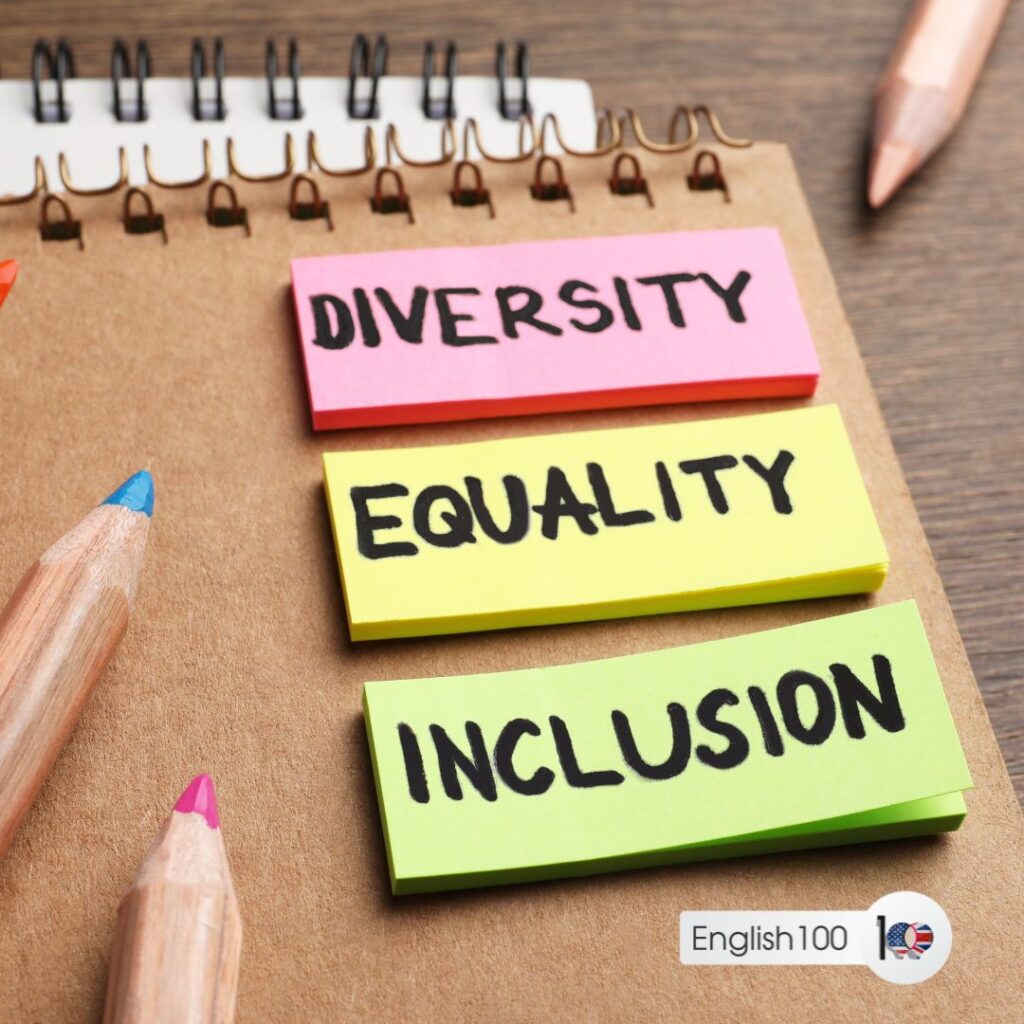Learning new words is one of the most important things you can do if you want to improve your English language skills. But learning new words can be a tedious and time-consuming task, especially if you’re not used to it. That’s why we’ve put together this list of good ways to help you learn words in English. From using flashcards to using online quizzes, these methods will help you learn words quickly and easily.
Learn words in English

7 Ways to memorize your new English words:
1. Read a lot:
Reading English language literature can be a great way to learn new words. Not only will you read interesting and inspiring texts, but you’ll also come across new vocabulary words, idioms and expressions.
2. Use dictionaries:
You don’t need to be an expert vocabulary user in order to make use of dictionaries simply consult the definition of a word before using it in conversation or writing. This way, you’ll avoid making mistakes with unfamiliar words.
3. Memorize flashcards:
Flashcards are a great way to learn vocabulary and idioms quickly and easily. Simply create cards with the definitions of new words, and review them frequently. This method is especially effective if you have a dictionary handy for quick reference.
4. Practice writing:
It is an easy way to write about words that you know well in your own language, in English this will help you develop fluency in using these vocabulary phrases in your everyday conversations and writings.
5. Use online quizzes:
One of the best ways to learn words in English is by taking online quizzes. By testing yourself on new vocabulary words and expressions, you’ll be motivated to learn more.
6. Use word clouds:
Word clouds are a great way to visually represent the usage of words in a text or speech. This tool can help you identify common vocabulary words and expressions, and figure out how they’re used in context.
7. Take a language course:
If you want to really improve your vocabulary skills, then taking a course in English grammar and vocabulary is the way to go. These courses will teach you how to use specific words in complex sentences and boost your understanding of written English.
A robust vocabulary improves all areas of communication — listening, speaking, reading and writing. Vocabulary is critical to a child’s success for these reasons: Vocabulary growth is directly related to school achievement.
Use vocabulary notebook:

In order to write effective content, you need to use appropriate vocabulary. A good way to improve your vocabulary is by using a vocabulary notebook. This will help you track the words and phrases that you are using, and make sure that they are accurately representing the topic of your article or post.
You can also use this tool to look up definitions for unfamiliar words. Once you understand the terms used in your field, it will be much easier for you to communicate with others on similar topics.
Here are some tips on how to make the most of a vocabulary notebook:
- Make sure that you have plenty of pages in your book. Approximately 250 pages per full-size dictionary are ideal.
- Write down every new word that you encounter during your day-to-day conversations and activities. This will help cement the words in your memory so they can be used more effectively in future sessions.
- Use keywords throughout each page of your book. When looking up a word, try including its definition within parentheses after the term itself. Doing this will increase the chance that you’ll find what you’re looking for quickly and easily.
Learn Words by Category or Theme:
Learn Words by Category or Theme for example:
- Animals.
- Beauty and Fashion.
- Business and Money.
- Construction and Engineering. (bridges, dams, etc.)
- Countries and Cultures. (Japan, China, India).
With the right vocabulary and strategies, you can make learning easy and fun. Here are some tips to help you learn words in your target language faster and easier:
- Start with general vocabulary. understanding common nouns, verbs, adjectives, etc will help you build more specific terms later on.
- Practice aloud as much as possible. This is one of the best ways to improve your fluency and pronunciation. Speaking out loud also helps solidify the material in your memory.
- Make flashcards or study lists for keywords and phrases. Not only will this help memorize these terms easily, but it’ll also give you quick access to them when studying or talking about the language outside of class.
- Use effective mnemonic devices to remember larger chunks of English vocabulary without having to try every word individually.
When you have a wider vocabulary in your target language it also helps support all four language skills: reading, writing, listening and speaking.
Top words to learn in English
Learning the most common words in English can greatly enhance your ability to communicate effectively in the language. Here are some of the top words to learn in English:
Hello – Used as a greeting.
Goodbye – Used to bid farewell.
Please – Used to make a request politely.
Thank you – Used to express gratitude.
Yes – Used to affirm or agree.
No – Used to negate or disagree.
Sorry – Used to apologize or express regret.
Excuse me – Used to get someone’s attention or to apologize politely.
I – Used to refer to oneself.
You – Used to refer to the person being spoken to.
He – Used to refer to a male person.
She – Used to refer to a female person.
They – Used to refer to multiple people.
We – Used to refer to oneself and others.
It – Used to refer to a thing or an animal.
This – Used to indicate something nearby.
That – Used to indicate something farther away.
Here – Used to indicate a place nearby.
There – Used to indicate a place farther away.
What – Used to ask about something.
Where – Used to ask about a location.
When – Used to ask about a time.
Why – Used to ask about a reason.
How – Used to ask about a manner or method.
Who – Used to ask about a person.
These words form the foundation of basic communication in English and are essential for everyday interactions. By learning and mastering these words, you’ll be well on your way to becoming proficient in English.
Some FAQs:
1. How can I learn English words easily?
The best way to learn all English words is by using a word search tool like WordWeb. This application allows you to type in any English word and receive a list of definitions along with examples of how that word can be used in sentences. With this information, you can build your English vocabulary effectively and efficiently.
2. What are the 5 difficult words?
There are five words that can be difficult to learn and remember, but they are essential for any writer. These five words are “conjunction,” “adverbial phrase,” “preposition,” noun modifier,” and gerund verb form.
3. How can I improve my English vocabulary?
This can be done through online resources like WordReference or via flashcards and quizzes that you can use with a personal dictionary. Another strategy is to read critically, paying close attention to individual word meanings so that you learn their nuances better.
Finally, try using synonyms whenever possible in your everyday conversations so that you aren’t limited when it comes to choosing the right word.
4. What is the best way to learn words?
There are many different ways to learn words in English, and the best way for you to find what works best for you is to experiment. Some people prefer flashcards or learning with an interactive grammar tool, while others prefer reading short stories or articles about a specific topic.
Whatever method you choose, be sure to set realistic goals for yourself and stick with them over time. And remember that practice makes perfect.
5. What are the 100 most common words in English?
The 100 most common words in English, often referred to as “sight words” or “high-frequency words,” are essential for basic communication and understanding in the language. Here they are in alphabetical order:
- a
- about
- after
- all
- also
- an
- and
- any
- as
- at
- back
- be
- because
- but
- by
- can
- come
- could
- day
- do
- even
- first
- for
- from
- get
- give
- go
- good
- have
- he
- her
- here
- him
- his
- how
- I
- if
- in
- into
- it
- its
- just
- know
- like
- look
- make
- me
- most
- my
- new
- no
- not
- now
- of
- on
- one
- only
- or
- other
- our
- out
- over
- people
- say
- see
- she
- so
- some
- take
- than
- that
- the
- their
- them
- then
- there
- these
- they
- think
- this
- time
- to
- two
- us
- use
- want
- way
- we
- well
- what
- when
- which
- who
- will
- with
- work
- would
- year
- you
- up
These words are foundational and appear frequently in both spoken and written English. Mastering them will significantly improve your ability to understand and communicate in the language.
In conclusion, there are many effective ways to learn words in English, but the most important thing is to start by using a variety of methods and strategies. With time, you will be able to build an intimate vocabulary that can take you anywhere in the language.
References:
- The importance of vocabulary | JCFS. (n.d.). https://www.jcfs.org/blog/importance-vocabulary#:~:text=A%20robust%20vocabulary%20improves%20all,ability%20to%20learn%20to%20read
- Textinspector. (2022). Is vocabulary important in language learning? | Text Inspector. Text Inspector. https://textinspector.com/vocabulary-in-language-learning/
